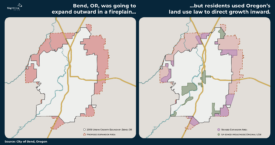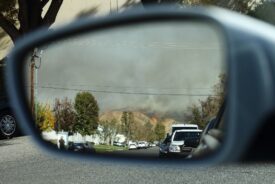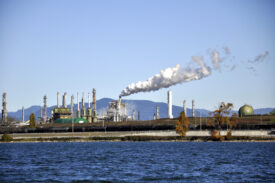Serena
After Meaghan’s weekend reading pick a couple of weeks ago, I went on another of my zero-waste reading and inspiration kicks—sort of an annual kick in the pants I need to keep on top of low-waste livin’. First stop: Bea Johnson (h/t L.S.), complete with recipes for everyday needs and a video introduction if you prefer.
Why are developers still building sprawl? Atlantic writer Alana Semuels takes a look at why we’re diving right back into the development patterns that contributed to the recession, the builders still trying to tell us we want ever more space, and the yet-to-be-determined influence of Millennial and new urbanist tastes on the market.
Wow: the incredible decline of unions, in one animated map.
And, happy weekend! If you like a good cocktail, Seattle Times just made it worlds easier to mix local.
Eric
My top recommendation is this account of what it’s like to testify on a bill in Olympia, which is something I have occasion to do a few times each year. The bill, in this case, one that would support emotional development in school children—a worthy topic—but the lessons that author Chris Langeler draws from his experience with the legislature are much broader— and refreshingly positive.
This past week brought a small victory for the Thin Green Line, when the Skagit County hearing examiner ruled that the Shell Refinery at Anacortes must undergo a full Environmental Impact Statement process before it can build an oil train receiving facility. (Much credit here to our friends at Earthjustice who argued the case.)
Almost on cue, as if to underscore the dangers of the oil industry, that same Shell Refinery emitted odors strong enough to send at least two members of the downwind Swinomish Tribe to the hospital. Shell blamed the emissions on planned maintenance operations and said that no harmful compounds were detectable.
This week, we learned that Canada will begin taking some baby steps toward requiring the oil-by-rail industry to pay for the damages it may inflict on communities by levying a small safety tax. Canada will also begin requiring insurance for these shipments. According to Reuters:
Within two years federally regulated railways carrying any crude oil will now have to have insurance of at least C$100 million, ranging up to C$1 billion per incident…
Which is great and all, except that most major railroads are already insured at that level, and it’s a level that doesn’t even come close to the damages of a reasonable worst case scenario. The oil train catastrophe at Lac-Megantic, Quebec, for example, will cost somewhere north of $2.7 billion.
In another bit of remarkable timing, AP reporters Matt Brown and Joshua Funk demonstrated the importance of old school journalism this week when they broke the news that the federal government has been sitting on a risk analysis for oil trains that:
…predicts 10 “higher consequence events” causing more extensive damage and potential fatalities.If just one of those more severe accidents occurred in a high-population area, it could kill more than 200 people and cause roughly $6 billion in damage.
Funny. That’s just what Sightline has been saying.
Anna
At the risk of speaking about football in Seattle a little too soon, while wounds are still open, I highly recommend this Radiolab podcast about the sport. I bet most NFL fans aren’t aware that around the turn of the last century, a scrappy team of Native American youth from the Carlisle Indian School shaped the way the game is played today.
While you’re in the listening mode, check out Freakonomics’ look at how public relations and advertising mavens have been aggressively applying (and succeeding with) the fundamentals of behavioral economics way out ahead of the academic research.
And don’t miss the Rolling Stone examination of fossil fuel economics—and politics—in Canada:
Canada, indeed, stands at a crossroads. It can continue down Harper’s chosen path, unearthing billions of barrels of filthy fossil fuels and shackling its economy to the volatile trade in a single commodity — becoming rich or going broke at the whim of the oil markets.
Or it can take advantage of the collapse of crude prices to return to a more sustainable economy — as a currency-advantaged exporter of goods and services to its southern neighbor, the most voracious consumer economy on Earth. But even if Canadians oust Harper in October, a transformational change away from the nation’s new petro-economy appears remote. “ ’The West got in,’ ” Trudeau conceded to the audience at the Calgary Petroleum Club. “And it will remain in.”








